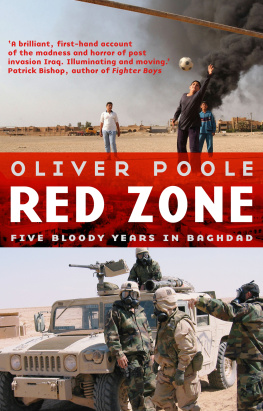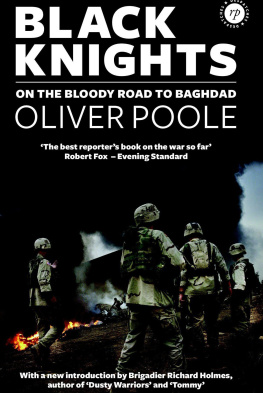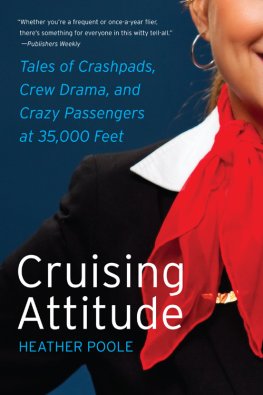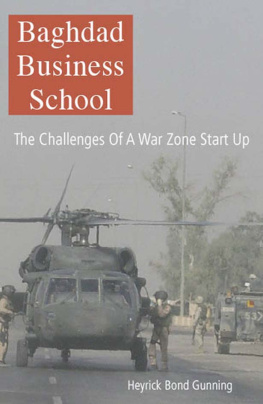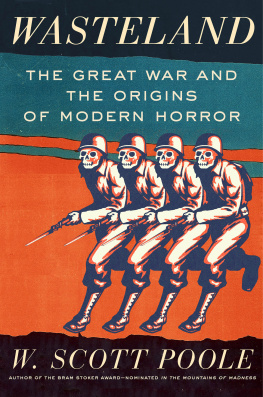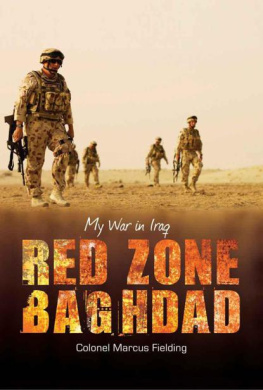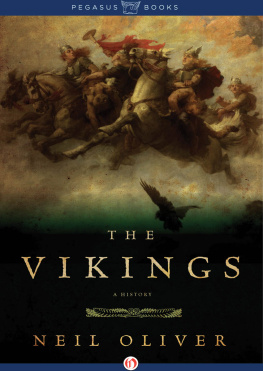About the Author
OLIVER POOLE first entered Iraq in March 2003 when he crossed the Kuwait border in the back of an American armoured vehicle as the only British daily newspaper reporter embedded with the US Army. He later returned as the Daily Telegraph s newly appointed Iraq correspondent, his home a hotel room in the middle of Baghdads Red Zone. He stayed until the end of 2006, when with his newspaper closing down his office and his Iraqi assistants fleeing the country, he joined the masses escaping through Baghdad airport.
Born and brought up in London, he was educated at Oxford University. After working for two years at the South China Morning Post in Hong Kong, he joined the Telegraph in 1999 and was appointed West Coast of America correspondent in September 2001. He is now an Executive Editor at ESI Media, which owns the London Evening Standard newspaper and The Independent digital sites.
Red Zone was first published in 2008 by Reportage Press. His book on his time with the US 3rd Infantry Division during the invasion of Iraq, Black Knights: On the Bloody Road to Baghdad , was published in 2004 by HarperCollins.
Praise for Red Zone and Black Knights :
The best reporters book of the war so far and it deserves to be one of THE books of the whole Iraqi crisis. The eyewitness accounts of the fighting, the terrible guilt of the soldiers and bystanders at the killing of civilians, the overwhelming confusion, the continuous question of why they are there are exhilarating and chilling Robert Fox, Evening Standard
He [Poole] understands the risk of being infected by gung-ho militarism when reporting brutality and stupidity, at the same time tempering this with fellow-feeling for the men on whom his life depends This is an exhilarating, honest, often scary account of modern war as close-up spectator Peter Millar, Sunday Times
A very honest account, devoid of false heroics, and an admirable lesson in how a reporter can share the solidarity of enduring fear and discomfort with troops to whom he owes his survival, but not lose his critical detachment Jonathan Steele, Guardian
Vivid ... (Mr Pooles) sense of the absurd and his ear for a quote make for a memorable account The Economist
Poole is a great reporterpossessed of a cool eye, natural sympathy and curiosity, and brisk honesty. He has immortalised them [the Black Knights] in such a true, funny and poignant book Patrick Bishop, Daily Telegraph
[Pooles] account of the baptism of fire endured by a US tank company is starkly horrific in places. It is also witty, often laugh-out-loud funny, and spiced with some wonderfully colourful penportraits Soldier magazine
Red Zone
FIVE BLOODY YEARS
IN BAGHDAD
OLIVER POOLE
REPORTAGE PRESS
Copyright Oliver Poole 2008
eBook edition first made available in 2016
First published by Reportage Press in 2008
Hardback: ISBN-13: 978-0-9555729-7-5
Paperback: ISBN-13: 978-0-9558302-5-9
All rights reserved. This book is sold subject to the condition that it shall not, by way of trade or otherwise, be lent, resold, hired out, or otherwise circulated without the publishers prior consent in any form of binding or cover other than that in which it is published and without a similar condition including this condition being imposed on a subsequent purchaser. Nor shall this work be reproduced or stored in an information retrieval system (other than for purposes of review) without the express permission of the publisher in writing.
Oliver Poole has asserted his right under the Copyright, Designs and Patents Act 1988 to be identified as the author of this work.
A library record for this book is available from the British Library.
Cover design by Henrietta Molinaro
To the memory of Eileen Donald
and the 124 journalists
killed so far during the war in Iraq
Contents
Preface
Genesis
The Hands of Victory
Baghdad
U.S.A.
Choice
Insurgency
Home
Tea and Sympathy
Armageddon
Tell Them of Us
Mission Accomplished
Exodus
Epilogue
Postscript
The Republic of Iraq
Baghdad
Preface
I recently learned about an internet blog posted by an Iraqi woman. Its author, who called herself Sahar, describes how she was woken one morning by the sound of her dog barking. Soldiers were outside and she asked if she could get dressed before they came in, to which they agreed. There were ten of them: three Americans and seven Iraqis. As the soldiers began searching her belongings, one of the Americans spotted a cabinet filled with books, many of them in English.
You read a lot, Maam? the soldier asked.
Yes, in fact I do, she answered, speaking in English for the first time.
Whats this? he said, surprised. Heinlein? Asimov? Grisham?
The American soldier saw a pile of board games and computer CDs. You play Diablo and Grand Theft Auto ! He turned around with a wide grin and for the first time properly looked at her, astonishment in his eyes.
You cant imagine the look on his face, Sahar writes. He was inside a house, with love, a family, like anywhere else. When he looked at me, he didnt see an Iraqi woman in a hijab, he saw a human being.
For the last few years, Baghdad was my home. I was living there as a foreign correspondent, covering a period when the certainties of life fragmented as a society unravelled. Some of my friends were abducted, others were murdered and a few were simply sent mad from the horror of it all. By the end of my time in Iraq, each morning brought news of the latest mutilated bodies found dumped by the roadside.
Despite the extremity of what was happening to their country, the majority of people I met remained not that different from you or me. They worried for their children; they got stressed about how to pay their bills; they commuted to work; they watched television; they made jokes about their hardships; and they tried to maintain good relationships with their spouse and children. Even amid the violence, the normal patterns of life continued. Shops opened, weddings were arranged, students sat exams, babies were born.
This book is, above all else, about human beings. It is about the families in Baghdad who insisted on providing food to a foreign guest even as outside coalition troops and armed gangs fought for control. It is about the US soldiers posted from homes half a world away to a place they were equipped neither to understand nor to help. It is about the British troops sent to do a job for which they never had sufficient numbers. It is, inevitably, also about me: a reporter from London learning the consequences for those on the ground of decisions made by politicians and diplomats in their offices far away in Washington and Whitehall.
I do not seek to explain in detail the intricacies of the policy decisions that shaped the war or the military strategies used during it. Rather my intention is to help people understand more about those anonymous figures civilian or soldier shown in news bulletins and newspaper photographs amid the sand, dust and danger of Iraq. The story in these pages is about what it was like to be in such a place, what that did to people and how they reacted. When society breaks down the old rules disappear and each individual becomes free to set their own limits. Many, far too many, used this opportunity as an excuse to explore how low they could go. But not all did. I was in the privileged position of witnessing individuals, many of whom I knew and cared for, deciding that they would not bend to the evil that surrounded them. It was what ultimately made the experience of living in Baghdad an unexpectedly inspiring one.




